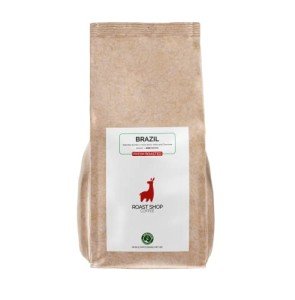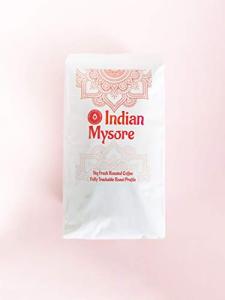Coffee, the beloved breakfast staple and afternoon pick-me-up, has enhanced the lives of millions around the world. For true coffee aficionados, the journey from bean to cup is a meticulously crafted experience that begins with high-quality beans. One increasingly popular option among these enthusiasts is the fresh whole bean coffee blend, particularly those offered in 1kg bags. This guide delves into the benefits of choosing fresh whole bean coffee, what to consider when selecting a blend, and answers some frequently asked questions about this beloved brew.
Understanding Whole Bean Coffee
Whole bean coffee refers to coffee that has been roasted but has not yet been ground. The biggest advantage of buying whole bean coffee is that it retains its freshness and flavor longer than pre-ground coffee. When coffee beans are ground, they expose more surface area to air, leading to oxidation, which diminishes flavor and aroma. Purchasing fresh whole bean coffee in 1kg bags allows coffee lovers to enjoy their beverage at its peak quality.
Benefits of Fresh Whole Bean Coffee
- Enhanced Flavor: Whole beans maintain their essential oils and compounds, providing a richer and more complex flavor profile that ground coffee often lacks.
- Customization: Grinding your beans at home means you can tailor the grind size to your specific brewing method, whether that's for espresso, French press, or pour-over.
- Freshness: Whole bean coffee stays fresh longer because the roasting oils are protected from the air, heat, and moisture that lead to staleness.
- Cost-Efficiency: Purchasing a 1kg bag of whole beans is often more economical than buying smaller packages, especially if you drink coffee daily.
- Sustainability: Many brands that sell whole bean coffee in larger quantities also prioritize sustainable and ethical sourcing, which benefits farmers and the environment.
Choosing a Fresh Whole Bean Coffee Blend
When selecting the perfect whole bean coffee blend, several factors come into play:
1. Roast Type
- Light Roast: Retains more of the bean’s original flavor, often fruity or floral.
- Medium Roast: A balance between the bean's taste and the roast’s flavors, appealing to a larger audience.
- Dark Roast: Characterized by a robust, bold flavor with deeper notes, often preferred by those who enjoy a classic coffee taste.
2. Origin
Coffee beans come from various regions around the world. Each area imparts distinct flavors to the beans:
- Central and South America: Often bright with citrus and chocolate notes.
- Africa: Typically exhibits fruity and floral undertones, such as berry or jasmine.
- Asia: Commonly known for earthy flavors and full-bodied profiles.
3. Blend vs. Single-Origin
While single-origin coffees come from one specific region, blends combine beans from different origins to create a unique flavor profile. Sourcing a well-balanced blend can provide a delightful complexity.
Storage Tips for Whole Bean Coffee
To ensure that your whole bean coffee remains fresh as long as possible, consider the following storage tips:
- Keep it Cool: Store beans in a cool, dark place away from heat sources and sunlight.
- Use Airtight Containers: Invest in airtight containers to reduce exposure to air and moisture.
- Avoid Refrigeration: While it may seem logical, refrigeration can cause moisture to form on the beans. Instead, keep them in a room temperature environment.
Brewing Your Coffee
Once you have selected your fresh whole bean coffee blend and stored it properly, it’s time to enjoy the fruits of your labor. Here are a few brewing methods you might consider:
- Drip Coffee Maker: Simple and convenient for everyday use.
- French Press: Provides a rich and hearty cup by steeping the beans in hot water.
- Espresso Machine: Ideal for those who prefer strong, concentrated coffee.
- Pour-Over: Allows for control over brewing time and temperature, enhancing flavor extraction.
- Cold Brew: A refreshing option that involves steeping coffee grounds in cold water for several hours.
Frequently Asked Questions (FAQs)
1. How long does whole bean coffee last?
- While whole bean coffee can last anywhere from 6 months to 1 year if stored properly, it’s best consumed within a month or two for optimal flavor.
2. What grinder is best for whole bean coffee?
- Burr grinders are preferred over blade grinders for consistent grind size, allowing for better extraction during brewing.
3. Is there a difference between organic and conventional coffee?
- Yes, organic coffee is grown without synthetic fertilizers or pesticides, often resulting in a different flavor profile and contributing to sustainable farming practices.
4. Can I freeze whole bean coffee?
- While freezing can preserve freshness, it’s not generally recommended since moisture can alter the beans. If you must, use an airtight container and only take out what you need without refreezing.
5. How can I tell if coffee is fresh?
- Fresh coffee should have a strong aroma and flavors that are lively. Look for a roast date on the packaging, as it indicates when the coffee was roasted.
Choosing fresh whole bean coffee, particularly in a 1kg bag, is a great way for coffee lovers to elevate their daily ritual. The benefits of enhanced freshness, customizable brewing options, and the potential for a richer flavor experience make this choice compelling. By understanding what to look for in a blend and how to properly store and brew it, coffee enthusiasts can indulge in revitalizing brews every day.
For many, there’s nothing quite like the process of grinding whole beans, savoring the aroma, and brewing a perfect cup of coffee, establishing an engaging ritual that enhances their coffee experience. In the world of coffee, the experience begins with the bean, and a 1kg bag of fresh whole beans can be the key to unlocking an unforgettable journey.






